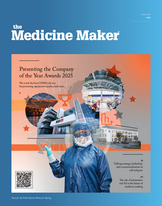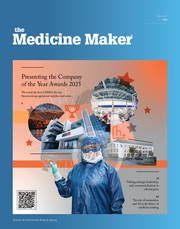When Two Worlds Collide
The pharma sector is constantly developing processes and technologies to reach new heights. But can the industry succeed in it pursuit of innovation without learning lessons from the tech industry?
Robin Ellis, Pete Sadler | | 5 min read | Opinion


With the rise in connected medical devices and the emergence of digitally-driven healthcare, the worlds of big pharma and big tech are rapidly converging. There is much to be gained from this alignment, but first there needs to be greater appreciation of the differences between each side’s operating model.
A significant structural difference between the two industries is the role of standards-setting organizations (SSOs). Industry standards are central to development in the technology, media, and telecoms (TMT) space. An SSO will outline a roadmap for technology development and invite members from industry and academia to share ideas on developing the new standard. This approach is well illustrated in the mobile telecom sector with the evolution of 2G up to 5G, where significant improvements on each standard were made. The protection that companies have in this environment to share ideas is based on standard-essential patents (SEPs), which are uncommon in the pharma world.
How the technology sector implements patents commercially also differs from the pharma sector. Regulatory requirements in the tech field are less rigorous and largely governed by the SSOs. Concepts like Patent Linkage Systems and patent term extensions do not exist in the tech world. Instead, the tech sector generally focuses on generating income through licensing technologies, whereas pharma often strives to maintain a monopoly on blockbuster products and avoid the dreaded “patent cliff”.
A licensing model works well for platform technologies that are frequently used in drug development. For example, consider an AI platform that can help predict the binding of small molecules to proteins, which in turn provides accurate lead optimization and toxicity predictions. The company behind the technology could have patents protecting the particular use of convolutional neural networks in this defined application, but has no direct interest in drug development. Instead, their business model is to licence their technology to pharma companies that can use it to speed up their drug discovery programs and potentially reduce the need for in vivo testing of drug candidates.
Approaches like this need to be broadly adopted by pharma companies. The industry faces a variety of challenges that are extremely complex and therefore require new ways of thinking, like those mentioned above, which are necessary for continued progress.
But if companies choose to embrace AI-based technologies, they will also have to consider how they will manage the massive volumes of data needed for them to function. Obtaining this data tends to require either willingness to collaborate or the technology necessary to gather and process the data. For now, both of these concepts remain somewhat alien to much of the pharma industry.
Pharma companies generate masses of data, and big tech is geared up to extract value from those large data sets. By working together to understand the different ways the two industries use data, as well as combat issues relating to data sovereignty, data sharing, and data security, it will be possible to bring the full value of data analytics to the fore.
However, data sharing remains an institutional barrier for the pharma industry. Generally speaking, pharma companies are unfamiliar with sharing data and are hesitant to share what is perceived as a competitive advantage with third-party platforms. Furthermore, patient confidentiality is often the reason for keeping data “in-house”. Although this has some merit, an overly cautious approach could see pharma companies fail to take full advantage of the technologies available to them.
This fear of sharing can be addressed through a better appreciation of how collaboration within big tech can work.
This may one day require the need for them to operate to an agreed standard, meaning that we could soon be seeing SEPs in pharma. SEPs must be licensed on Fair, Reasonable and Non-Discriminatory (FRAND) terms if they are to underpin an environment that rewards and protects innovation, while also enabling interoperability and collaboration on a wider scale.
SEPs and FRAND licenses may pave the way for the development of truly personalized treatment approaches. For example, in the US, Aprecia Pharmaceuticals received approval from the FDA for a 3D-printed drug designed to treat epilepsy. The tablet design can be manipulated to fit the needs of different patient demographic. Colorful tablets can be printed for children for example.
But to create patient-centric medicines like this at scale, pharmaceutical companies will need to make the formulations (the ink), while tech companies provide the printers. With multiple providers of “inks” and “printers”, standardization will be required to avoid each patient, pharmacy, or hospital having to have a battery of printers to make each and every medicine.
Every step of the process could benefit from SEPs. Doctors could prescribe a medication according to weight, age, and disorder severity for a specific patient, but the software; “ink” and printers needed to print the prescription will all have to be governed by standards that allow interoperability between drugs from different companies.
This example may seem fanciful now, just as the idea of self-driving cars was 20 years ago. The lesson is that if truly digital and personalized medicine is to become a reality, then changes in mindset need to happen now.
Big tech’s nature of innovation and disruption is foreign to the pharma sector. In my view, pharma companies should look to collaborate with tech firms to encourage development and data sharing, and embrace new technologies to remain at the forefront of a rapidly evolving industry.
Partner, Reddie & Grose LLP
Partner, Reddie & Grose LLP



















